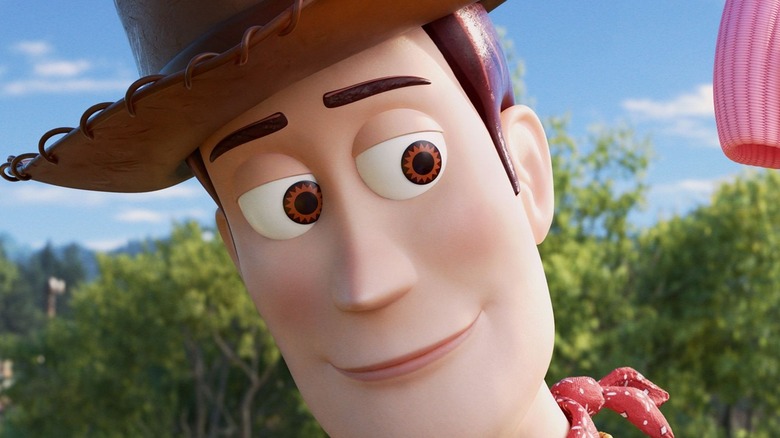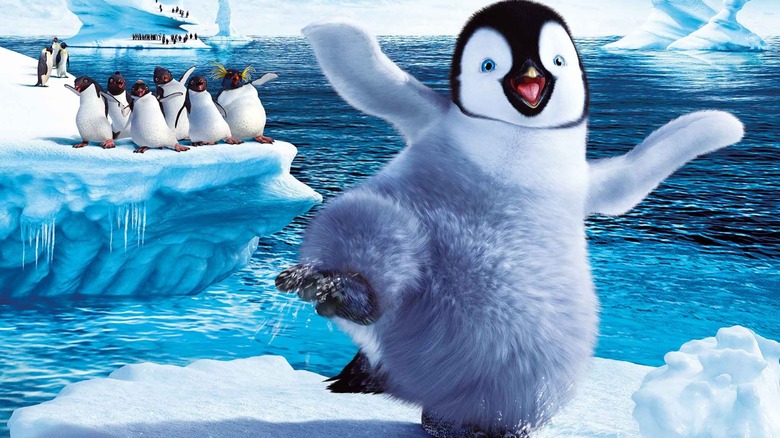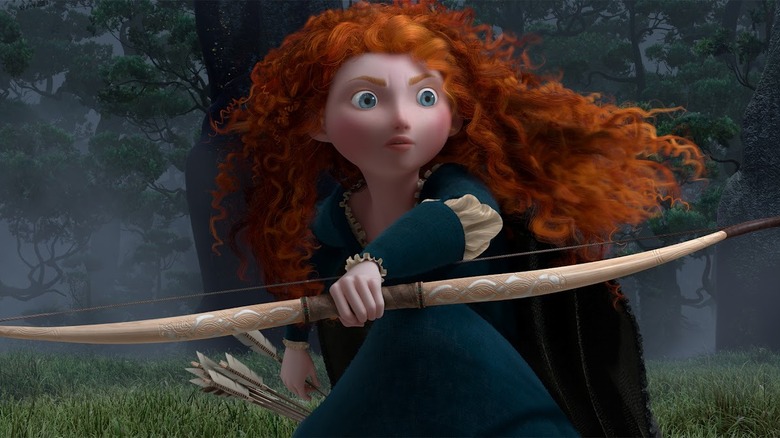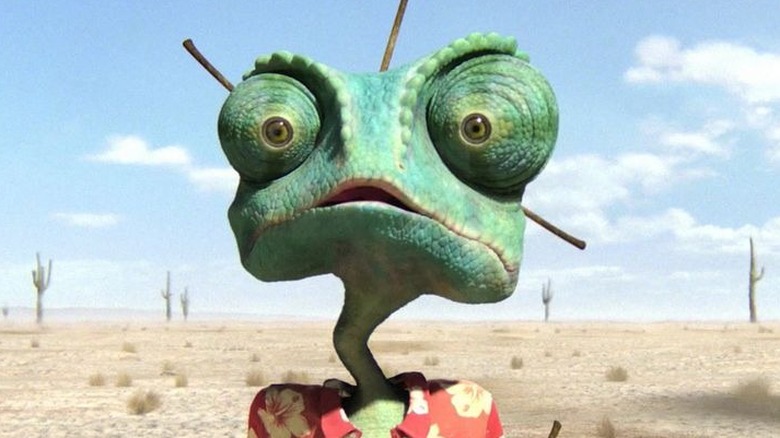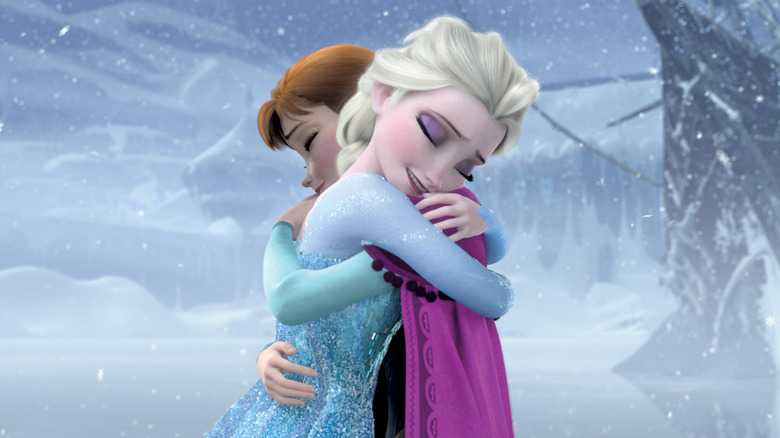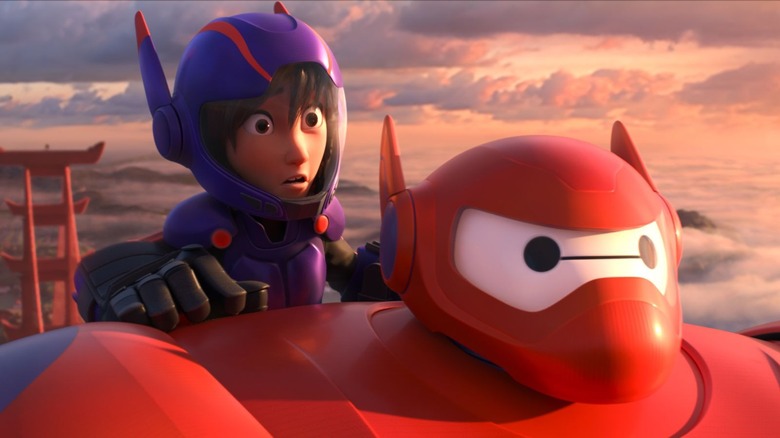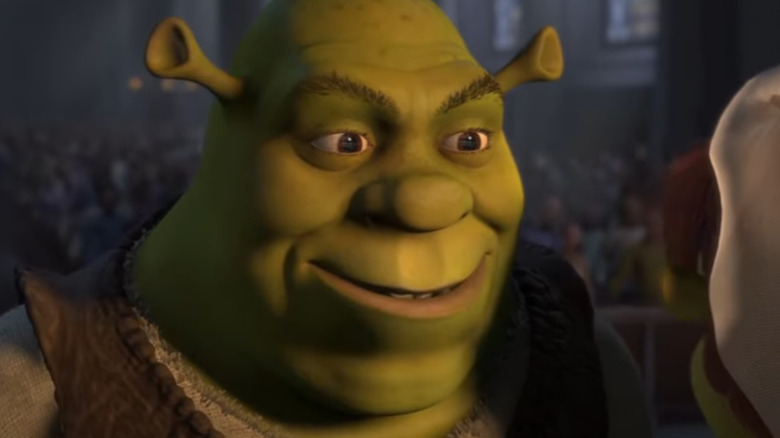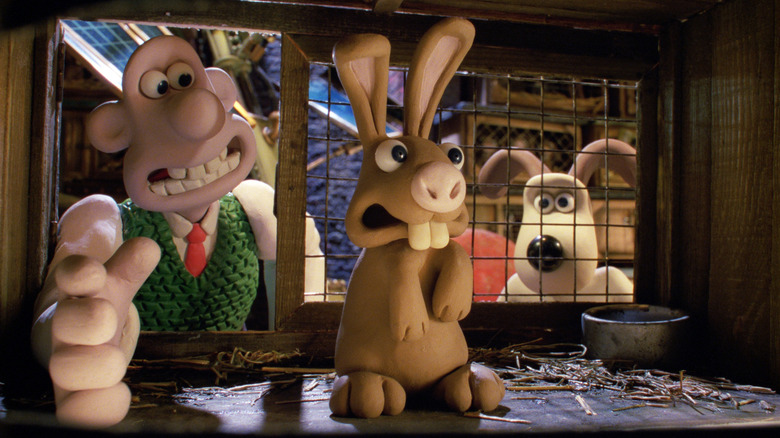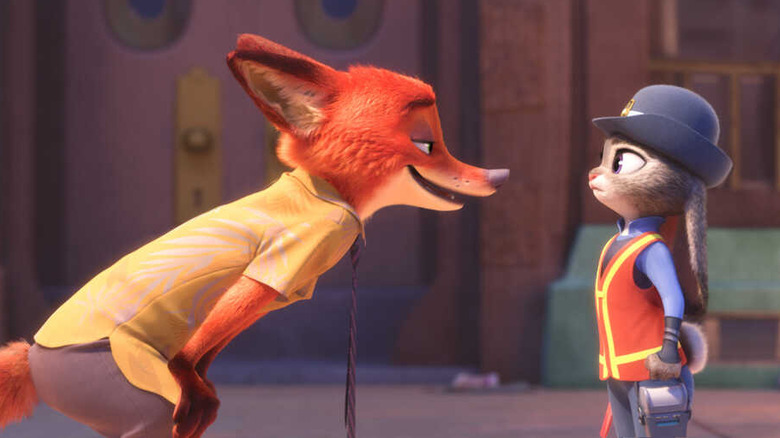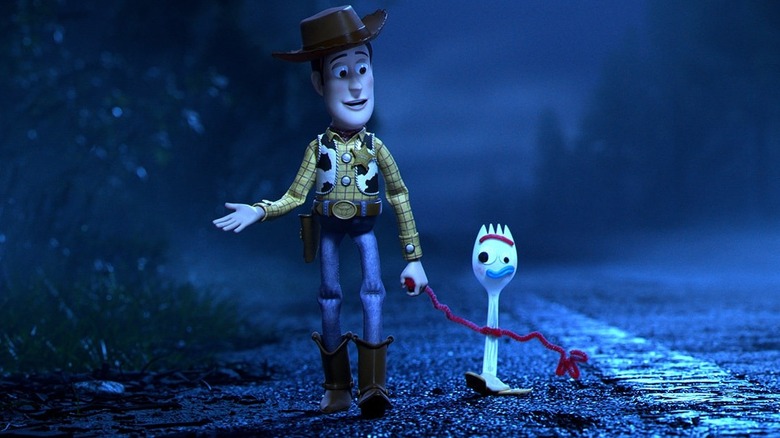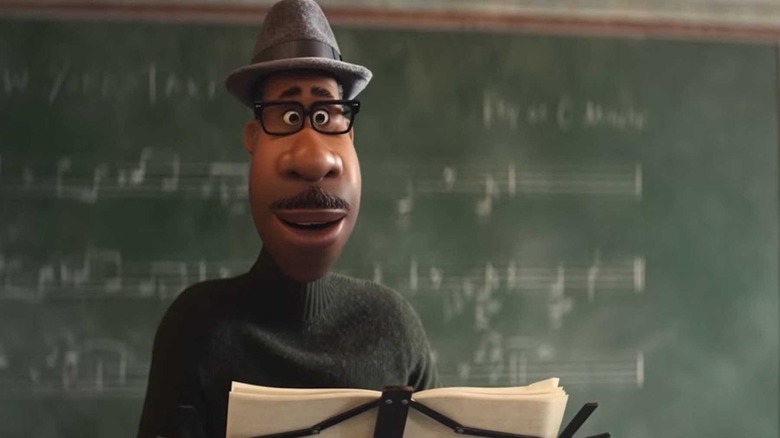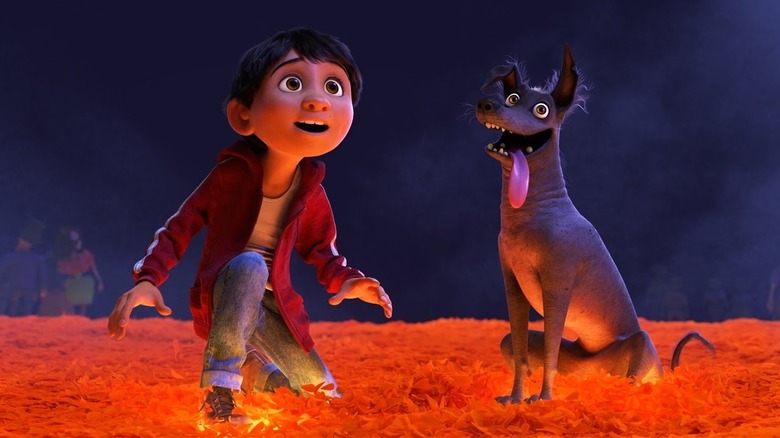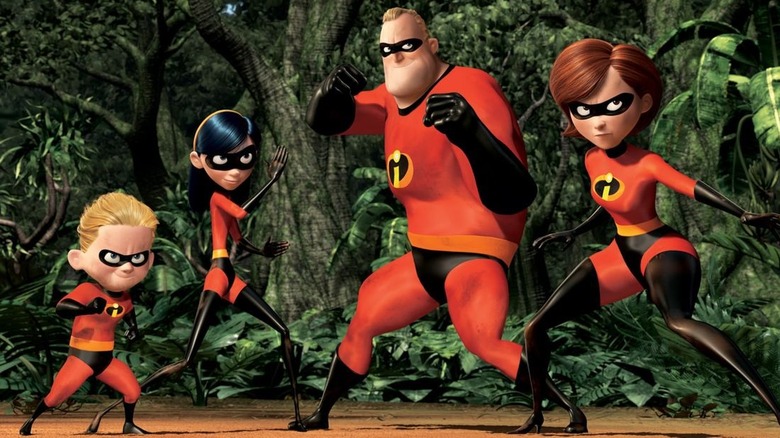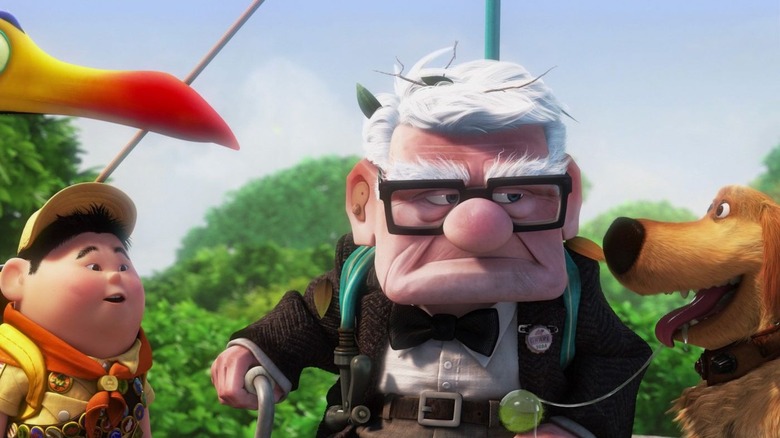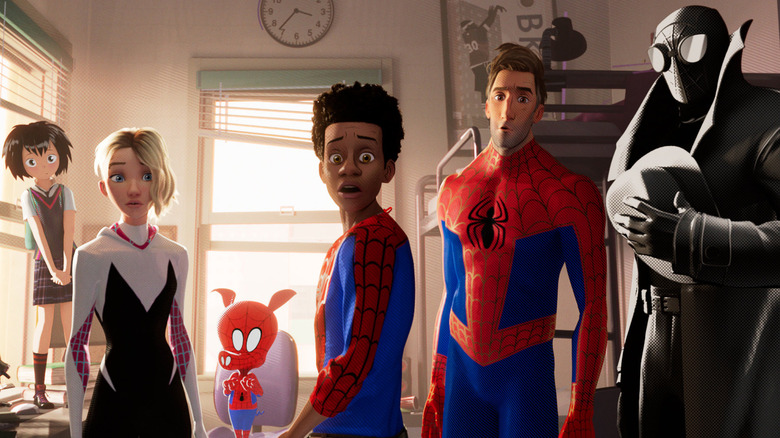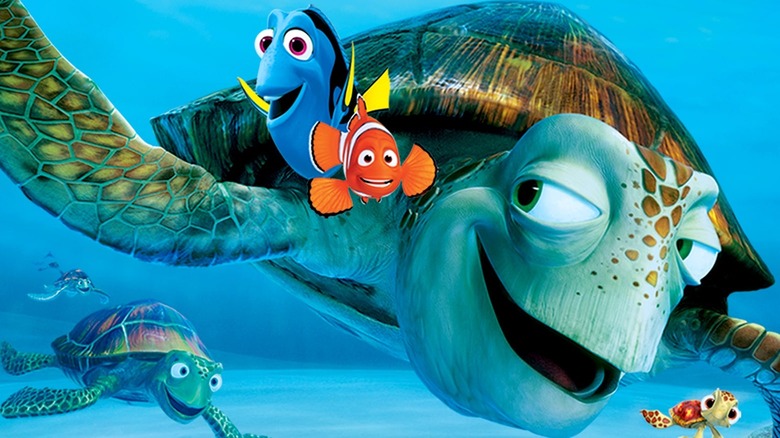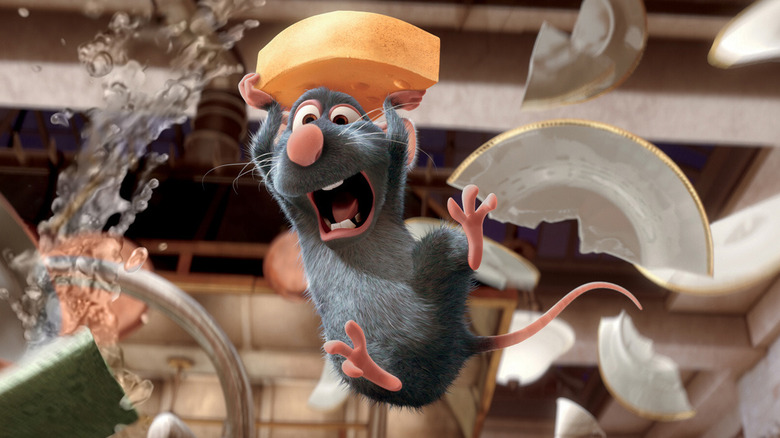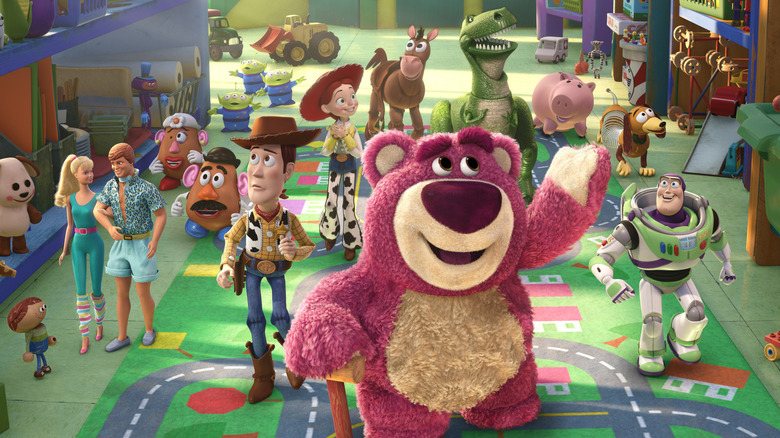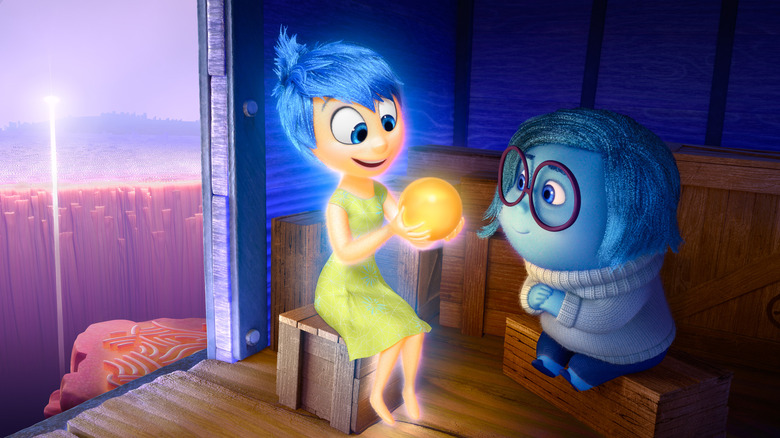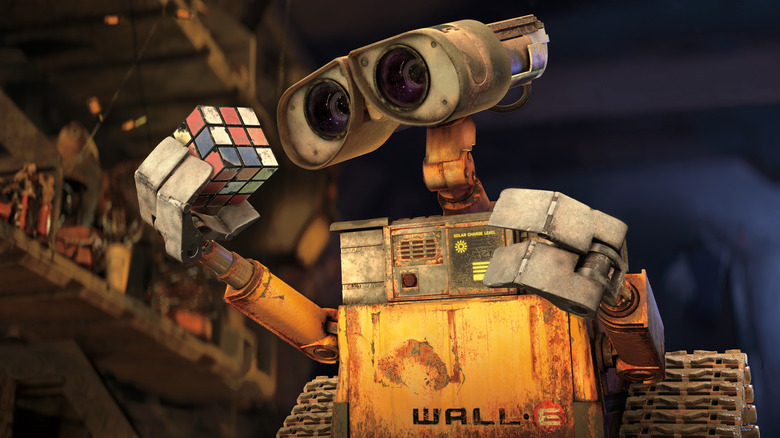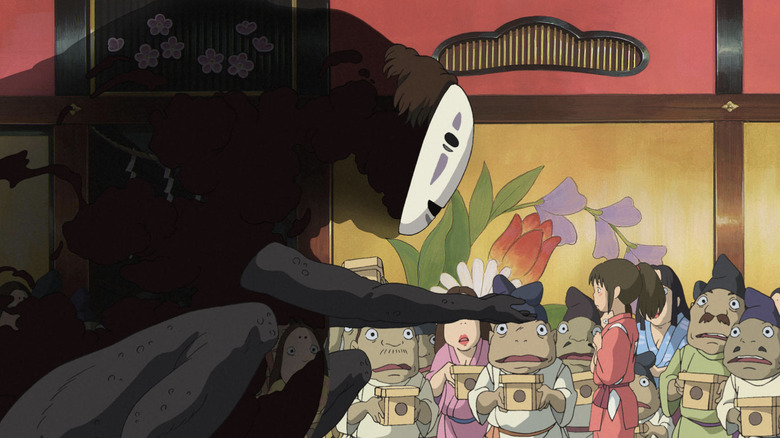Every Best Animated Feature Oscar Winner, Ranked
The Academy of Motion Picture Arts and Sciences first began presenting the Oscar for Best Animated Feature at the 74th Academy Awards in 2002. Before then, "Snow White and the Seven Dwarves" and the first "Toy Story" won special achievement Oscars for their technical innovations, "Beauty and the Beast" broke ground as the first animated nominee for Best Picture, and several animated films had earned victories in the music categories, but otherwise, the Academy had been reluctant to give animated films their due. Launching an award specifically for animation has received mixed responses; in 2007, the New York Times described it as a "ghetto" for the medium, while acknowledging many in the animation industry were grateful for the recognition.
When it comes to the Best Animated Feature award, Academy voters have tended to pick high-quality winners — though they've also had a pattern of overlooking more adventurous work in favor of safer choices from Disney and Pixar. Given how many of these films are virtually tied in quality and equally adored by critics and audiences alike, individual personal rankings will likely vary significantly, but this list is an attempt to gather a general consensus (by averaging each film's score on Rotten Tomatoes, Metacritic, and IMDb) and produce a definitive ranking of animated Oscar-winners.
20. Happy Feet
George Miller might have been robbed of Best Picture and Best Director Oscars for "Mad Max: Fury Road," but the shiny-and-chrome Australian auteur did win an Academy Award for his 2006 animated jukebox musical "Happy Feet." In a relatively weak year for the animation category, "Happy Feet" was actually the best-reviewed of the three nominees (it was up against "Cars" and "Monster House"), but compared to basically every other winner the category has had, it's far from the most memorable.
The story of a penguin who can't sing like his peers but has incredible dancing abilities, "Happy Feet" stands at an odd crossroads between cute, kitschy, and cleverly subversive that fails to cohere into a true classic. Though it offers some admirable political and ecological commentary, with a particularly dark and daring third act, much of the story is subsumed into the same predictable "be yourself" message that every animated family film covers, and certain aspects have aged particularly poorly — the assorted ethnic stereotype voices done by Robin Williams would never fly today.
19. Brave
Brenda Chapman made history in 2013 as the first woman to win the Best Animated Feature Oscar as a co-director on "Brave" (another woman, Vicky Jenson, co-directed the 2002 winner, "Shrek," but the award went to producers rather than directors that first year). Sadly, this milestone comes with a bittersweet background. Chapman had a deep personal connection to "Brave," developing this Scottish fairy tale around her relationship with her daughter, but she was fired midway the film's production and replaced with Mark Andrews. This move has been widely viewed as evidence of sexism within Pixar's management.
Chapman is proud of how "Brave" ultimately turned out, but one wonders how it much better it could have been if she had been kept on as director. The movie has a weird tonal balance at points that definitely feels like the product of too many conflicting visions at play. Reviews were solid by general movie standards but disappointing by Pixar standards, and worse than all four of the year's other nominees.
18. Rango
Arguably, Johnny Depp's last great starring role came as the voice of the titular pet-chameleon-turned-Old-West-sheriff from "Rango" in 2011. Directed by Gore Verbinski (who made the first three "Pirates of the Caribbean" films) and animated at Industrial Light and Magic, "Rango" is certainly one of the most idiosyncratic movies to win the Best Animated Feature Oscar. With a mystery that plays out like a PG version of Roman Polanski's "Chinatown" and includes cameos from Raoul Duke and The Man With No Name, this is a film made just as much (if not more) for adult cinephiles as it was for kids and families.
The extreme eccentricity of "Rango" explains why it got some of the most mixed reviews of any animated Oscar winner. Positive reviews focused on the film's humor and its elaborate animation, which utilized stunningly realistic textures and Western cinematography supervised by Oscar-winner Roger Deakins. Negative reviews took issue with the story, often describing it as overly convoluted, and some viewers were put off by the intentionally ugly character designs.
17. Frozen
"Frozen" is one of those movies whose status as a cultural phenomenon went far beyond whatever critics may have thought. Sure, critics mostly liked it (about as much as they did many other Disney movies in the 2010s) but its box office far exceeded any of the studio's other original films from the decade. The best parts of Jennifer Lee and Chris Buck's film — its catchy songs, its twists on fairy tale tropes, and its emphasis on sisterly love over romance — struck a chord with audiences, making it easy to forgive the parts that don't work as well.
Originally planned as a hand-drawn film, the CG animation in "Frozen" isn't as impressive as that of its princess predecessor, "Tangled," or subsequent Disney offerings like "Moana," but visual shortcomings aren't its only problems. All of the songs occur in the first half of the movie, resulting in rather lopsided storytelling, and the comic relief is far from Disney's strongest. It makes sense that "Frozen" won the Oscar in 2014, but the victory likely had more to do with its cultural impact, positive messages, and subversiveness than with its quality as a film.
16. Big Hero 6
"Big Hero 6" is far from a bad movie, but it's a rather unexceptional one, especially by Disney's high standards. Directed by Don Hall and Chris Williams and loosely adapted from the Marvel Comics series of the same name, "Big Hero 6" is a well-animated children's superhero film that only falls short due to not being particularly original or distinctive in its genre. It's telling that its Rotten Tomatoes score is much higher than its Metacritic score, meaning the large majority of critics liked it, but few of them loved it.
The East-meets-West setting of "San Fransokyo" is well-realized, but the best aspect of the movie is widely agreed to be Baymax, the adorable puffy robot who helps protagonist Hiro Hamada deal with his grief. Baymax's scenes are exceedingly funny and add some emotional depth to an action film some critics felt became formulaic. "Big Hero 6's" win capped off a controversial 2015 Oscar race in the Best Animated Feature category, which saw voters make ignorant comments about international contenders "The Tale of the Princess Kaguya" and "Song of the Sea" while "The LEGO Movie" wasn't even nominated, a decision Esquire called "the Oscar nominations' biggest snub."
15. Shrek
"Shrek," directed by Vicky Jenson and Andrew Adamson, was the first film to ever win the Best Animated Feature Oscar in 2002, beating Pixar's timeless tearjerker "Monsters, Inc" in a vote that might be considered contentious today. Truthfully, assessing the quality of "Shrek" these days means contending with the weight of its legacy: its positive and negative influences on animation, its evolution into an increasingly tired franchise, and its generation of memes of varying degrees of irony.
All those issues aside, "Shrek" is still a very good movie. Yes, it's dated, both in its animation and its constant pop culture references, but datedness is far from the worst fate to befall a movie. The satire making fun of Disney has, if anything, become even more relevant as the Mouse House's power has grown. The story also manages to have its cake and eat it too in regard to fairy tales, simultaneously offering both gleefully irreverent mockery and an earnest, thoughtful twist on the genre.
14. Wallace and Gromit: The Curse of the Were-Rabbit
With no Pixar movie released in 2005 and most of the year's films from other CG studios underwhelming, the 2006 Best Animated Feature nominees were unusual, in that they all used old-school animation techniques. These included Hayao Miyazaki's mostly hand-drawn "Howl's Moving Castle," Tim Burton's stop-motion "The Corpse Bride," and the ultimate winner: Nick Park and Steve Box's claymation "Wallace and Gromit: The Curse of the Were-Rabbit." Absent-minded inventor Wallace and his wiser canine companion, Gromit, had already starred in two Oscar-winning short films, 1993's "The Wrong Trousers" and 1995's "A Close Shave."
If the plasticine duo's first feature-length film isn't quite as classic as those shorts, it's still a fun time for the entire family. The work produced by Aardman Animation has a hand-crafted charm that even the best computer animation can't replicate — the rabbits are adorable, and Gromit is somehow more expressive with a single moving eyebrow than most live-action actors. The slapstick comedy is hilarious, and the story works in plentiful entertaining homages to classic horror movies. Just don't go in expecting the emotion of a Pixar movie or Aardman's previous film, "Chicken Run."
13. Zootopia
"Zootopia," directed by Byron Howard and Rich Moore, is a funny, entertaining, and politically complicated movie. Set in a world of anthropomorphic animals where once-predatory species now live in uneasy harmony with their former prey, this Disney film uses conflicts between predators and prey as a metaphor for racism and other forms of prejudice. Critics almost universally agreed that the movie was good, but there have been many nuanced arguments debating its success as an allegory.
In general, it's important to understand "Zootopia" as a product of its time, even if 2016 doesn't seem that long ago. Barack Obama's presidency began with many white commentators assuming his election marked the start of a "post-racial" era, thinking which, it quickly became clear, was misguided. The plot of "Zootopia" reflects the late Obama era's heightened understanding of racism's omnipresence as well as its belief in incremental reforms as a means to combat this problem. Some of this incrementalism (for example, the idea that hiring more fox cops will stem prejudice against foxes) plays awkwardly in retrospect, but the film clearly has its heart in the right place and is a joy to watch despite any allegorical issues.
12. Toy Story 4
"Toy Story 4" didn't sound like it should work. After all, wasn't "Toy Story 3" one of the most perfect endings to any movie series? Various shake-ups behind the scenes, including the ousting of studio head and "Toy Story" creator John Lasseter over sexual harassment issues, only made the fate of this sequel more uncertain. And yet, when the finished film, directed by Josh Cooley, finally came out in 2019, "Toy Story 4" was almost universally praised as a worthy successor to the previous three movies.
Introducing such memorable new characters as existentially-terrified arts-and-crafts project Forky, malevolent-yet-sympathetic retro doll Gabby Gabby, and the hilarious Key-and-Peele-voiced carnival prize duo of Bunny and Ducky, "Toy Story 4" resisted becoming a mere cash grab by finding fun new angles on life as a toy. The romance between Woody and Bo Peep takes center stage, and while the bittersweet ending might not have been what people expected, it's another strong note to (probably) conclude this series on.
11. Soul
"Soul" was both blessed and cursed by the timing of its release. On the negative side, the 2020 film had to skip theaters entirely due to the COVID-19 pandemic. On the positive side, it was widely viewed on Disney+, where its message that happiness and meaning can be found in the littlest things resonated deeply with viewers, and the unusually adult-oriented and gorgeously animated Pixar film ended up winning new studio head Pete Docter his third Oscar.
In terms of visual accomplishment, "Soul" easily ranks as one of Pixar's best films. Despite primarily positive reviews, however, there are many elements of the story that inspired criticism. Much of the excitement about Joe Gardner being Pixar's first Black protagonist was blunted by the problem that he spends most of the movie as a cat, while 22 (a technically raceless soul that nonetheless talks in the voice of white actress Tina Fey) is in control of his physical body. Some critics found the film's real world story significantly more compelling than the metaphysical stuff.
10. Coco
If "Zootopia" is a movie that feels like it's gotten ever-so-slightly worse with age, Lee Unkrich's "Coco" is one that's only gotten better. A rare original Pixar film amidst a sea of sequels in the late 2010s, "Coco" builds its story gradually in service of one of the all-time great animated tearjerker endings. The story of 12-year-old musician Miguel journeying through the Land of the Dead and healing the trauma that's led his family to ban music entirely is the closest Pixar has come to making a full-blown musical, and the song "Remember Me" also picked up the Oscar for Best Original Song.
"Coco" was originally almost titled "Día de los Muertos," and Disney's attempts to trademark the name of the Mexican holiday drew rightful criticism, but the film's crew responded appropriately, bringing on several prominent critics of the trademark attempt as consultants. The resulting film is a loving celebration of family, memory, and Mexican culture that's only slightly brought down by its repetition of some of the same story beats as other Disney and Pixar films.
9. The Incredibles
In an interview with McKinsey, director Brad Bird said he was invited to Pixar to "shake things up." He succeeded and then some with 2004's "The Incredibles," which stands out even in today's saturated marketplace as one of the best superhero films ever made. It's the closest thing there's been to a truly great "Fantastic Four" film, mixed with plot elements that could be described as a less cynical, PG version of "Watchmen."
In "The Incredibles," every joke lands, every action scene has excitement and serious stakes, and every bit of familial conflict is at once universally relatable and perfectly built for these specific characters. This was Pixar's first film centered around humans and the first in which computer animation had gained the capacity to make such characters as appealing as traditional animation. There are arguments to be made about the specifics of the movie's political viewpoints, but the fact that you can even have such serious arguments about "The Incredibles" says a lot about how seriously Bird treats the art of animation.
8. Up
In 2010, the Oscars expanded the number of Best Picture nominees from five movies to 10. This decision helped "Up," directed by Pete Docter, become the first Pixar film (and second animated film) to compete for the Academy's top prize. Given its Best Picture nomination, a Best Animated Feature win for "Up" was guaranteed, even in the face of such cool competition as "Coraline" and "The Fantastic Mr. Fox." It may have been a preordained winner, but it was also a deserving one that ranks in the upper echelons of Pixar's filmography.
The film's first 15 minutes, with its wordless montage of Carl and Ellie's journey through marriage, miscarriage, and final goodbyes, is still among the biggest tearjerkers in all of animation and generally the best-remembered aspect of "Up." But there's plenty more to love about the movie, from the impeccable voice acting of the late, great Ed Asner to the Miyazaki-esque beauty of its flying house imagery to the spot-on comedy of Dug and the other dog characters. The silly adventures in "Up" might seem a world away from the seriousness of the opening, but a poetic ending ties everything together.
7. Spider-Man: Into the Spider-Verse
However you feel about the failed awards campaign for "Spider-Man: No Way Home," the best Spider-Man movie and the best multiverse movie already won an Oscar. Co-directed by Bob Persichetti, Peter Ramsey, and Rodney Rothman and produced by Phil Lord and Christopher Miller, "Spider-Man: Into the Spider-Verse" was a full-on game-changer for animation when it was released in 2018. Mixing multiple different animation styles and experimenting with color, frame rate, and shading, "Into the Spider-Verse" looked like nothing audiences had seen before, and it's packed with so many overwhelming details it demands to be watched multiple times.
If artistic innovation wasn't enough, "Into the Spider-Verse" also tells one of the most heartfelt superhero adventure tales ever put to film. Each of the six Spider-people brings something fun to the table, but it's Miles Morales who rightfully serves as the movie's main hero. The story demonstrates that everyone is capable of heroism and how those who feel alone can find strength amongst one another. It arguably deserves an even higher spot on this list; it's one of the top-rated movies on IMDb, and Empire Magazine ranked it as the best animated film of all time in 2021.
6. Finding Nemo
When "Finding Nemo," directed by Andrew Stanton, played in theaters in the summer of 2003, it became Pixar's biggest box office hit to that point, even breaking the record previously held by "The Lion King" for the highest-grossing animated film. It's easy to understand why this aquatic adventure was so popular. While not Pixar's most complex story, "Finding Nemo" is an expertly-told hero's journey with groundbreaking effects animation, exciting set-pieces, and funny characters (the cheerfully forgetful Dory was so beloved she became the star of a sequel, "Finding Dory," in 2016).
Right from the start of the film, when clownfish dad Marlin witnesses his wife and all but one of her eggs killed by a barracuda, "Finding Nemo" casts a strong emotional spell. It's sympathetic to Marlin's desire to protect his disabled son, Nemo, while also making him realize the ways in which he's been overbearing and off-putting as a father. "Finding Nemo" marked the first of Pixar's many Best Animated Feature Oscar wins, though it got a strong challenge from smaller, more experimental nominee "The Triplets of Belleville."
5. Ratatouille
Brad Bird's "Ratatouille" was a Pixar movie that critics embraced more than general audiences. The public enjoyed it well enough — it ranks towards the middle of the pack in regards to IMDb user ratings and towards the bottom of Pixar's box office charts — but critics were outright ecstatic about the film, which was the top-ranked Pixar film on Metacritic as of June 2021. It makes sense given that the single greatest scene in "Ratatouille" is about the act of criticism, in which jaded restaurant reviewer Anton Ego drops his defenses after one bite of Remy's signature dish.
While Ego's story appealed heavily to critics, Remy's quest to prove himself as a culinary artist against all odds was likely relatable to many filmmakers in the Academy, a factor that probably contributed to its Oscar win. "Ratatouille" stands as proof that Pixar could take one of the most unappetizing premises possible (rats in a kitchen) and turn it into mouthwatering mass entertainment. And while memes aren't an indicator of quality, the movie connected enough with the public to inspire a full-blown fan-made musical.
4. Toy Story 3
Like "Up" the preceding year, "Toy Story 3" was among the Best Picture nominees in 2011, and it's not hard to argue that it was better than the winner, "The King's Speech." Directed by Lee Unkrich, who served as editor on the first two "Toy Story" films, this second sequel builds on the thematic groundwork of its predecessors and takes the story of the toys' time with Andy to its sad yet inevitable conclusion. It's virtually impossible to watch the film's final act, wherein Woody, Buzz, and their friends face the specter of their own mortality, without tearing up.
By the time Unkrich's film hit theaters, it had been 11 years since the last "Toy Story" movie, and "Toy Story 3" expertly used the nostalgia of now-older fans to make its biggest impact. Pretty much everyone liked it, but teens who saw it before going to college (and the parents of such teens) were its true target audience in terms of maximum emotional manipulation. And as much as everyone talks about the film's darkness, it's also got some brilliant comedy, especially in regards to the relationship between Barbie and Ken and the scene in which Mr. Potato Head becomes a tortilla.
3. Inside Out
It's cliche at this point to observe that most Pixar films center around imagining if different creatures or objects had feelings, so it was practically inevitable that the studio would eventually ask the question, "What if feelings had feelings?" The 2015 release "Inside Out," directed by Pete Docter, anthropomorphizes the five primary emotions (Joy, Sadness, Fear, Anger, and Disgust) inside everyone's head, using these colorful characters as a lens to tell the story of a pre-teen girl struggling with moving to a new city.
The psychology used for the film's inner world-building was well-researched, and its accessible yet deeply nuanced framework has been found useful in helping children deal with serious emotional subjects. Arguably Pixar's most startlingly original film in a decade filled with sequels, "Inside Out" is as funny and visually inventive as one would expect from the studio's best work, and the pure catharsis of its conclusion is nearly unmatched. This one should have gotten a Best Picture nomination.
2. WALL-E
Alongside Christopher Nolan's "The Dark Knight," Andrew Stanton's "WALL-E" was widely agreed upon by both critics and audiences to be one of the best movies of 2008, proof that popular blockbusters could be artistically ambitious and politically relevant as well as wildly entertaining. There was serious outrage when neither film was nominated for best picture in 2009, especially given the extremely mixed reviews of surprise nominee "The Reader." The Academy expanded the number of Best Picture nominees in response to such criticism.
A post-apocalyptic romantic comedy starring robots who communicate mostly by saying each other's names, "WALL-E" is perhaps the biggest swing Pixar has taken since the original "Toy Story," and they knocked it out of the park. The first half-hour is a lovely homage to silent cinema, and if the later scenes on the Axiom spaceship are more traditional in their frantic chase sequences, they're also darker in their social commentary than virtually anything else Disney has released. "WALL-E's" portrait of humanity's future is frightening at times, but it ends on a beautifully inspirational note.
1. Spirited Away
Hayao Miyazaki's "Spirited Away" stands out from every other Best Animated Feature Oscar winner in many ways. It's the only winner produced through mostly hand-drawn animation, the only Japanese anime to win, and the only winner not originally produced in the English language. Considering how often 2D and international films get snubbed for this award, "Spirited Away's" victory feels like even more of a miracle now than it did in 2003. More than any other win, this one demonstrates the potential of the Oscars to expand the public's understanding of what animation can do — in 2021, Japanese Studies scholar Dr. Shiro Yoshioka told Time Magazine that "Spirited Away" winning the Oscar "made Japanese animation a more global film genre rather than very niche."
A visually stunning fantasy adventure, "Spirited Away" is about a girl forced to work in a bathhouse for spirits in order to save her parents, who were transformed into pigs as punishment for stealing the spirits' food. With its imaginative storytelling, ever-shifting morally ambiguous characters, and sharp perspective on nature and traditions under threat in the modern world, it's perhaps the best film in the career of the most talented director to ever work in animation.
